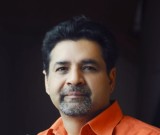By Agha Iqrar Haroon

It looks apparent that the Islamic Military Alliance to Fight Terrorism (IMAFT) will work closely with the North Atlantic Treaty Organisation (NATO) in the Middle East and can be considered as an informal extension of NATO comprising of Muslim States.
Branded as “Muslim NATO” by media, IMAFT will collaborate, support and work with NATO authorities to deal with regional threats. The US President Donald Trump will speak his mind about the role of IMAFT while attending the US-Arab Islamic summit in Riyadh on May 21, 2017 and this Summit is actually an informal inaugural Summit of IMAFT.
The US President Donald Trump after attending the US-Arab Islamic summit would travel to Brussels on May 25 to attend the NATO meeting where the Middle East situation will come under discussion in reference to the US-Arab Islamic Summit.
While attending the US-Arab Islamic summit, President Trump is expected to talk about the role of IMAFT and how the United States, NATO and IMAFT would collaborate against terrorism present in the region. Interestingly, the biggest terrorist state in the world for the US Secretary of Defense James Mattis is Iran. After assuming charge of his office in February 2017, Mattis called Iran “the single biggest state sponsor of terrorism in the world”.
The US-Arab Islamic Summit would also determine the Terms of reference (ToRs) of IMAFT that will be headed by the former Chief of Pakistan Army General (retd) Raheel Sharif.
Top level delegations of Algeria, Yemen, Turkey, Iraq, Tunisia, Egypt, United Arab Emirates (UAE), Bangladesh, Bahrain, Morocco, Jordan and Pakistan have sent conformation to attend the Summit.
President Trump is expected to meet Prime Minister of Pakistan Nawaz Sharif during the US-Arab Islamic summit in Riyadh and this meeting is being considered “very important” to redesign the fragile US-Pak relationship though recent visit of the Finance Minister Ishaq Dar to Washington already worked well and the US-Pak relations came out from a diplomatic pit.
Pakistan is playing well by keeping a balance between Washington and Beijing but imbalance in its relations with Saudi Arabia and Iran is perceivable. The appointment of General Raheel Sharif as the head of IMAFT raised questions in the Parliament of Pakistan when opposition parties expressed their serious reservations over this development but the government decided to stand with Saudi Arabia in the larger interest of the country.
There is no doubt that Pak-Iran bilateral relations are going through a bad patch since last one year but both countries are shy to accept this fact openly.
Iran is not comfortable with military support of Pakistan to the Saudi-led military alliance and expressed its apprehension over appointment of General (retd) Raheel Sharif as the head of the Saudi-led military Alliance while Pakistan believes that General Sharif would bridge relations between Iran and Saudi Arabia, and military Alliance would not be used against any country but only against terrorists.
Pakistan is optimistic that it can play a significant role to neutralize Saudi-Iran tensed relations but facts speak otherwise, indicating that Iran and Saudi Arabia can mess already burning Middle East in near future.
Iran is neighbouring country of Pakistan but Pakistan cannot compromise its foreign relations with Saudi Arabia and the United States. Pakistan has diplomatic wedlock with Saudi Arabia since early 80s and three countries; Pakistan—Saudi Arabia and the United States fought together against the former Soviet Union in Afghanistan.
The US-Pak-Saudi alliance during the ‘Operation Cyclone’ brought sectarianism, terrorism, radical Islam, drugs and radicalization in Pakistan; however, Islamabad always stands with Saudi Arabia and now leading IMAFT. This very fact is enough to understand that the US-Pak-Saudi relations are everlasting, time tested and more important to Pakistan than anything else.
Disclaimer:
The views and opinions expressed in this article/Opinion/Comment are those of the author and do not necessarily reflect the official policy or position of the Dispatch News Desk (DND). Assumptions made within the analysis are not reflective of the position of Dispatch News Desk.
